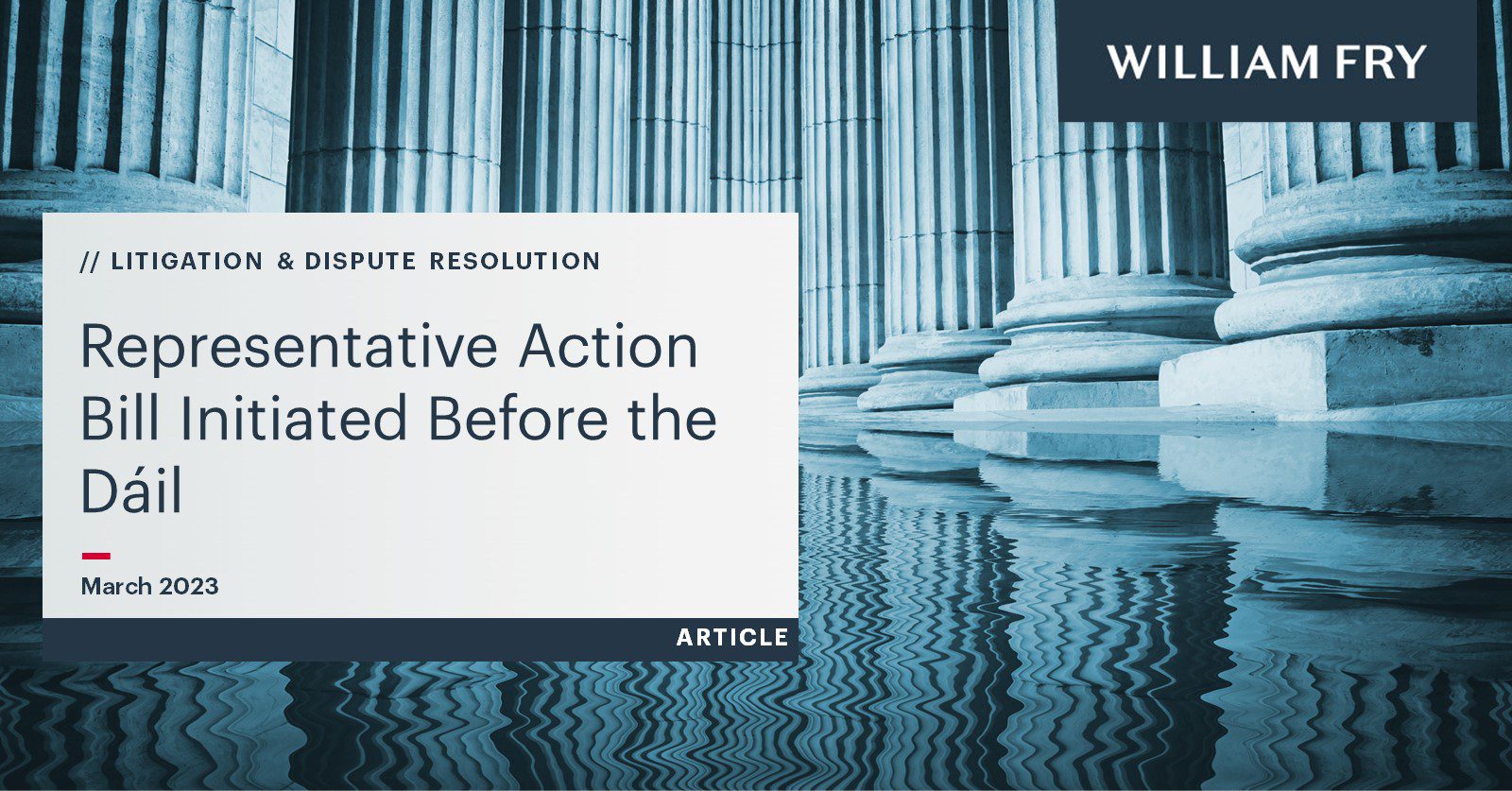In advance of the imminent application deadline of 25 June 2023, the Irish government has initiated the Representative Actions for the Protection of the Collective Interests of Consumers Bill (Bill) before the Dáil.
The Bill proposes to transpose the Representative Action Directive (EU 2020/1828) (Directive) into Irish law. The Directive was due to be transposed by 25 December 2022. Ireland failed to meet this deadline, and the European Commission recently announced that it was taking measures against those member states, including Ireland, who failed to notify national measures transposing the Directive. The Directive entered into force in December 2020 and takes effect from 25 June 2023.
The Irish government published the General Scheme of the Bill in March 2022, and pre-legislative scrutiny was completed in December 2022.
An Overview of the Bill
The substance of the Bill does not differ significantly from the General Scheme, detailed in our earlier article here. The Bill is divided into three parts. Part 2 deals with Qualified Entities, and Part 3 with Representative Actions. The Directive aims to protect the collective interests of consumers by providing procedural mechanisms (injunction and redress measures) to consumers in all member states. The High Court (Court) remains the designated court under the Bill for representative actions in Ireland. “Qualified Entities” (QE) will be enabled to bring representative actions before the Court, on behalf of consumers against traders that have infringed certain provisions of EU law. This will introduce a form of collective action or “class action” into Irish law.
Funding of representative actions
The publication of the Bill has been keenly anticipated, partly because of the potential for an introduction into Irish law of third-party litigation funding, which is currently prohibited. The Directive does not oblige member states to introduce third-party litigation funding. The Bill goes no further than the General Scheme in that it replicates the mandatory provisions of the Directive and provides for third-party funding of representative actions “insofar as permitted in accordance with law”. Section 27 of the Bill provides for certain disclosures to be made by qualified entities to the Court where the action is financed by third-party funders. Section 27 obliges the Court to ensure that the funding of representative actions, where permitted, does not divert the action away from the protection of the collective interests of consumers.
Given the current wording in the Bill, the extension, through legislation, of any exemptions from the rules against third-party litigation funding in representative actions, seems unlikely. However, further developments in Europe may prompt such changes. In late 2022, the European Parliament proposed a non-legislative resolution to the European Commission (Resolution) calling for the regulation of private third-party funding where permitted in member states. Echoing comments from the former Chief Justice Clarke in SPV Osus Ltd v HSBC Institutional Trust Services (Irl) Ltd and Others [2018] IESC 44, the Resolution notes that legal costs may represent a barrier to access to justice, and member states may wish to consider introducing legislation to allow such funding that complies with the Resolution. Regarding representative actions, it states that member states should take measures to ensure the costs of proceedings related to such actions do not prevent QEs from exercising their rights to redress.
The Irish government has recently taken steps to introduce litigation funding in Ireland in a limited way. The Courts and Civil Law (Miscellaneous Provisions) Bill 2022 completed its passage through the Dáil and is now before the Seanad for consideration. This legislation proposes to exempt international commercial arbitration from the rules against third-party funding. International commercial arbitration includes proceedings before a court arising from an international commercial arbitration.
Irish Parliament Debates on the Bill
The Bill will now progress through the Houses of the Oireachtas where its provisions will be debated, and may be subject to change.
We will keep you updated on material changes with the passage of the Bill through the Oireachtas. For further information or to discuss any aspect of the Bill in more detail, please contact Paul Convery or Adele Hall.
Contributed by Gail Nohilly



